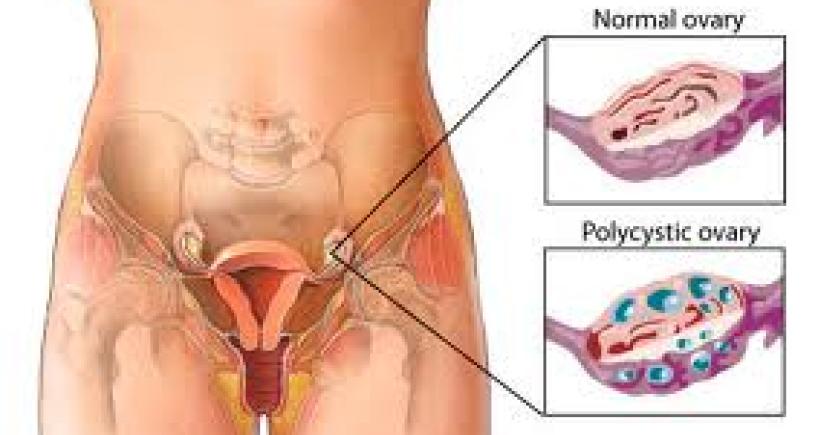
Obstetrics and Gynaecology
Polycystic Ovarian Syndrome: Symptoms & Treatments
Polycystic Ovarian Syndrome: Symptoms & Treatments Aug 19, 2012
Polycystic Ovarian Syndrome or PCOS, is one of the most common female Endocrine Disorders, manifesting Obesity, Hirsutism (excessive facial or body hair), Alopecia (male pattern hair loss) Irregular Menstruation, Acne associated with Enlarged Ovaries, Acanthosis Nigricans (brown skin patches), High Cholesterol Levels, Exhaustion or Lack of Mental Alertness, Decreased Sex Drive, Excess Male Hormones and Infertility. Other symptoms may include sleep apnea (breathing difficulties during sleeping), thyroid disorder and, depression and anxiety. This complex disorder is characterised by the excessive production of hormones known as androgen, by the ovaries that interferes with the growth of the ovarian follicles.
Causes Of Polycystic Ovarian Syndrome: the cause of PCOS is uncertain. Most researchers think that more than one factor play a role in PCOS. There is strong evidence that it is a genetic disease.
Syndrome Amongst Urban Women: PCOS is commonly found amongst urban women, thevaries from 1 out of 10 women. It’s more common amongst infertile women. PCOS is caused by the imbalance of the hormones found in our brain and ovaries. PCOS usually happens when a hormone called LH or levels of insulin are too high, which results in extra testosterone production by the ovary.
The Early Symptoms For PCOS: not all women with PCOS have the same symptoms, they may vary. Some of the symptoms are:
• Irregular menstrual period / no periods
• Infertility
• Increase hair growth on the face, chest, and stomach – this condition is called Hirutism
• Acne, oily skin or excessive dandruff
• Excessive weight gain or obesity
• Baldness or thinning or patching of hair
• Dark brown or black skin on the neck, arms, breasts or thighs which is called Acanthosis Nigricans
Women With PCOS Are More Likely To Develop Diabetes: women with PCOS are at an increased risk for developing type II diabetes. More than 50% of women with PCOS will have diabetes or pre-diabetes before the age of 40.
The Treatment Procedure: there is no specific cure for PCOS. It needs to be managed to prevent the problems.
Birth Control pill- it may reduce male hormone levels and helps to clear acne. Only progestogen pill or better known as mini pill should be taken.
Metformin -a drug which is used to treat diabetes is also helpful for women with PCOS symptoms. Abnormal hair growth will slow down and ovulation may return after a few months of use.
Lack of ovulation is usually the reason for fertility problems in PCOS. Several medications that stimulates ovulation can help women with PCOS to get pregnant. For most patient Clomiphene Civate is the first choice of therapy to stimulate ovulation. If this fails then Metformin is tried with Clomiphene.
Gonadotropin can also be used to stimulate ovulation. These are given as injections.
For hair growth or extra male hormone – anti androgen may reduce hair growth and clear acne. Spironolactone (Aldactone) has been used to reduce the impact of male hormone.
Incidence Of Polycystic Ovarian Syndrome: polycystic ovarian syndrome (PCOS) accounts for 90% of women with oligomenorrhoea (infrequent periods) and 30% of women with amenorrhoea (absent of periods) and over 70% of women with anovulation.
Diagnosis Of Polycystic Ovarian Syndrome
- Laparoscopy- it allows direct inspection of the ovaries; in case the ovaries are enlarged and polycystic. However, polycystic ovaries may appear normal at laparoscopy.
- Vaginal ultrasound scan (better than abdominal)-the vaginal ultrasound may show the typical PCOS appearance but reliability varies with expertise.
- Surgical Treatment
- Ovarian drilling – is a surgery that brings in ovulation. It is done when a women does not respond to fertility medicines. This is done through laparoscopy. This surgery can lower male hormone levels and in ovation, but these affects may only last for a few months.



















